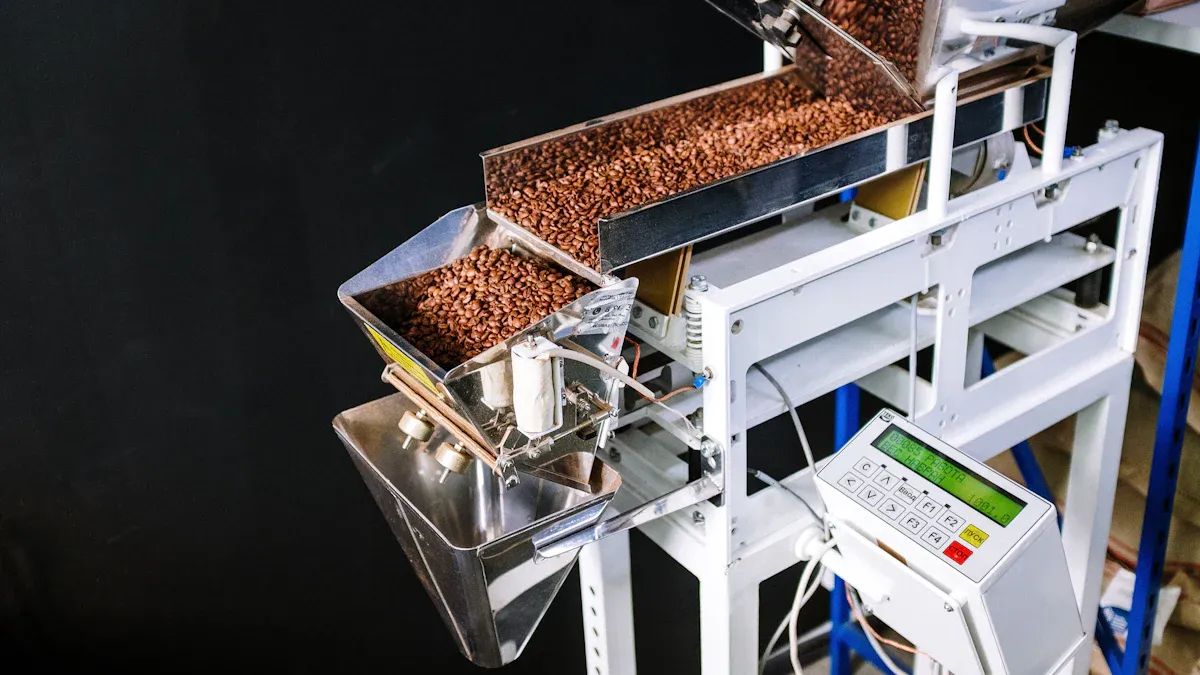
Sustainable manufacturing in coffee machines: A competitive edge for suppliers has become a pivotal focus in the industry. As consumers increasingly seek eco-friendly products, manufacturers are under rising pressure to implement sustainable practices. These efforts not only minimize environmental impact but also establish suppliers as innovative leaders in the market. By embracing sustainable manufacturing in coffee machines, suppliers gain a significant competitive advantage, appealing to eco-conscious customers and building lasting brand loyalty. Aligning with sustainability enables suppliers to meet regulatory requirements, elevate their reputation, and strengthen their position in an ever-evolving industry.
Key Takeaways
- Making coffee machines in eco-friendly ways helps the planet and saves resources.
- Shoppers who care about the environment want green products, pushing makers to create energy-saving designs.
- Using materials that break down naturally and recycled parts cuts trash and attracts eco-friendly buyers.
- Coffee machines that use less energy save money and help the Earth by lowering pollution.
- Following rules like the EU Deforestation Regulation keeps suppliers trustworthy and competitive.
- Brands earn loyal customers by being honest and showing they care about the planet.
- Spending money on eco-friendly methods costs more at first but saves money and helps in the long run.
- Smart tools and IoT make coffee machine production better and greener, drawing tech-loving buyers.
Understanding Sustainable Manufacturing in Coffee Machines
Defining Sustainable Manufacturing
Sustainable manufacturing refers to the creation of products using processes that minimize environmental harm while conserving energy and natural resources. In the coffee machine industry, this approach ensures that every stage of production, from material sourcing to end-of-life disposal, aligns with eco-friendly principles. By adopting sustainable practices, manufacturers can reduce their carbon footprint and contribute to a healthier planet.
A scholarly perspective highlights key aspects of sustainable manufacturing that are particularly relevant to coffee machine production:
| Aspect | Description |
|---|---|
| Eco-design methodologies | Focus on developing sustainable products through lifecycle consideration, including material selection and end-of-life strategies. |
| Circular economy principles | Emphasizes the transition towards business models that prioritize sustainability and environmental responsibility. |
| Lifecycle management | Involves managing all phases of a product’s lifecycle (beginning, middle, end) to prevent environmental impacts and enhance economic benefits. |
| Design for disassembly | A strategy that improves product performance during maintenance and at the end of life, facilitating remanufacturing and reuse of components, particularly in espresso coffee machines. |
| Component modularity | A design approach that supports remanufacturing, especially for key components like boilers in espresso machines, enhancing sustainability in manufacturing processes. |
These principles provide a roadmap for coffee machine manufacturers to integrate sustainability into their operations effectively.
Principles of Sustainability in Coffee Machine Production
Sustainability in coffee machine production revolves around three core principles: environmental responsibility, economic viability, and social equity. Manufacturers must prioritize eco-friendly materials, energy-efficient designs, and waste reduction strategies. For instance, using recycled metals and biodegradable plastics can significantly lower environmental impact. Additionally, designing machines for disassembly and modularity ensures that components can be reused or recycled, extending the product’s lifecycle.
Economic viability plays a crucial role in sustainable manufacturing. By adopting energy-efficient production methods and reducing waste, manufacturers can lower operational costs. Social equity, on the other hand, involves ensuring fair labor practices and supporting local communities. Together, these principles create a holistic approach to sustainability that benefits both the environment and society.
The Importance of Sustainability for Suppliers
Sustainability has become a critical factor for coffee machine suppliers in today’s market. Several trends underscore its importance:
- Emerging legislation has shifted sustainability from a voluntary initiative to a mandatory requirement. Suppliers must now comply with stricter environmental regulations to remain competitive.
- The growing presence of Chief Sustainability Officers in companies highlights the increasing focus on sustainable practices at the executive level.
- Consumers are prioritizing environmental, social, and governance (ESG) criteria when making purchasing decisions. Suppliers who align with these values can attract a broader customer base.
By embracing sustainable manufacturing, suppliers can differentiate themselves in the market. They can position their brand as a leader in innovation and environmental responsibility. This approach not only meets consumer expectations but also builds long-term trust and loyalty. Sustainable Manufacturing in Coffee Machines: A Competitive Edge for Suppliers is no longer just a trend—it is a necessity for success in the modern marketplace.
Market Demand for Sustainable Coffee Machines
The Rise of Eco-Conscious Consumers
Eco-conscious consumers are reshaping the coffee machine market. Their growing preference for sustainable products has driven manufacturers to innovate with energy-efficient designs and eco-friendly materials. This shift reflects a broader trend where individuals prioritize environmental responsibility in their purchasing decisions.
The coffee machine market has surged to USD 6.15 billion by 2033, fueled by demand for premium coffee experiences that align with sustainability. Consumers increasingly seek machines that offer smart technology for customization and energy efficiency. Manufacturers have responded by developing advanced designs that minimize environmental impact while delivering high-quality coffee experiences.
Post time: Apr-15-2025
